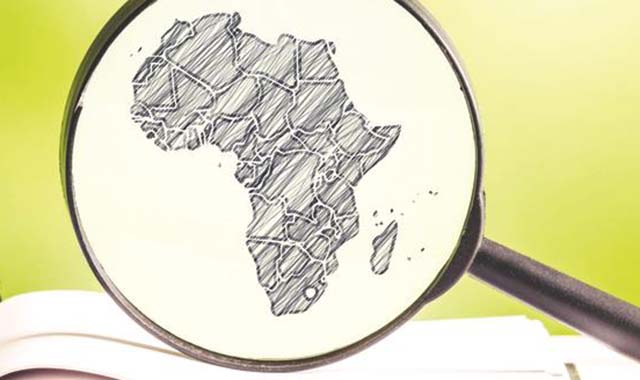A new approach to ending Africa’s wars

Despite considerable progress, parts of Africa are still mired in violent civil wars that are costing millions of lives and destroying national economies. The UN’s record of intervention — or lack of intervention in some cases — has been one of failure. In this composite cover story, DAVID MEFFE argues that only a different approach to maintaining peace can bring an end to this African tragedy.
THE twentieth century showcased both the best and worst of humanity, from exponential advances in science and technology, to the horrors of mechanised warfare and cruelty on a scale hitherto unknown to the world. The UN was meant to act a medium through which to balance these achievements and challenges, channelling dialogue and orchestrating a concert of nations. The results proved infinitely more complex.
Decolonisation, the Cold War and the dissolution of old world political structures laid the groundwork for a general global malaise that materialised into several avoidable human catastrophes, during which the UN acted as little more than accountants of slaughter. No part of the world experienced this more cruelly than Africa.
Early failures of international arbitrators and peacekeepers in Katanga and Biafra left a stain on the UN emblem, while later conflicts in Angola, Sierra Leone and Somalia exposed their impotence.
The 1994 Rwandan Genocide provided a startling reminder of the gross inefficiencies of international diplomatic bureaucracy, and the manner in which broad policy can dehumanise the individual and lay waste to even the best intentions. It reminded the world that the true enemy of humanity is not evil, but rather the indifference of good leaders, and a lack of empathy translated into direct action. There are currently nine ongoing UN missions on the African continent: Western Sahara, Mali, Liberia, Côte d’Ivoire, Central African Republic, Democratic Republic of the Congo, South Sudan, Abyei, and Darfur. Concurrently, the world now faces the very real threat of several separate famines across the globe, four of which could take place in Africa.
While this new century appears different in its gadgetry, it showcases many of the hallmark troubles of the old world. We see again the rise of violent nationalism, state-sanctioned xenophobia, religious intolerance, trade and physical barriers, and humanity’s ever-present indifference towards its neighbours. The weapons of war may have changed, but not its ultimate goals. What needs to change is our approach to these challenges, or we doom ourselves to repeating the mistakes of the past.
New approaches
Africa remains at a crossroads of sorts, with one foot still stuck in the old world and the other plunging desperately into the unknown. The Heidelberg Institute’s 2016 Conflict Barometer identifies 14 highly violent civil conflicts currently underway in sub-Saharan Africa alone. If left unchecked, these could quickly spiral into decades-long conflicts or more blatant expressions of ethnic cleansing or outright genocide.
New approaches to peace from the international community must incorporate multidisciplinary forms of conflict resolution that go past soldiers, involving NGOs, lawyers and economic investors to spark lasting growth. These sectors already work independently, with varying degrees of success, and an organisation like the UN could be best suited to harmonise their efforts. Yet, they cannot achieve these goals alone.
Nations must commit to providing both financial and military support to long-term nation-building operations, rather than flashy military movements or quick-fix solutions. Preventable diseases, economic inequality and the elimination of those who prey on the weak need to be lasting targets of robust new missions spearheaded by multilateral participants. New approaches to gender and social opportunity inequality should work in tandem with multinational armed protection of civilians – both hard and soft power pushes. The UN Security Council needs to hold responsible those who blatantly violate human rights in the name of power and greed, and act decisively to discourage others. The age of the peacekeeper is over, or perhaps never was; what we need now are peace-builders committed to staying until the job is done, however long it takes.
An absence of war does not necessarily denote peace. Prosperity and stability are seeds not supplanted but sown and patiently tended, or else choked in infancy by weeds. The new US president, Donald Trump has espoused an Americo-centric approach to foreign policy, slashing humanitarian budgets and threatening to drastically cut back on both UN and Nato spending – upcoming elections in Europe could see traditional humanitarian nations go down the same road.
Yet, we see a global community in which the troubles of one nation are not geographically contained – pirates, terrorists and warlords don’t operate in a world constrained by arbitrary borders. In order to remain relevant, the UN must adapt to these changes and act accordingly, or else whither in the crumbling remains of their old world.
David Meffe is a Canadian freelance journalist, photographer and blogger from Montreal – his work focuses on human rights, development and music in Africa. He is currently based in Aarhus, Denmark, completing a master’s degree in war & conflict reporting. This article is reproduced from New African magazine.









Comments